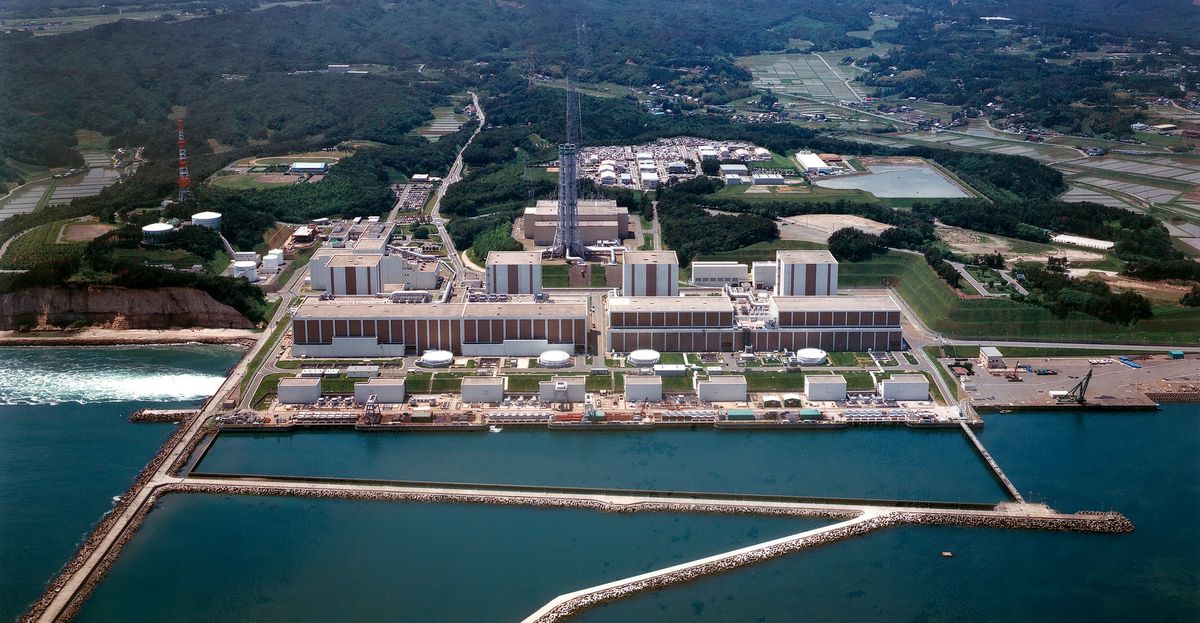China Bans Japanese Seafood as Russia Eyes More Exports

The Lede: On Thursday, China announced an immediate blanket ban on all seafood imports from Japan citing the dangers of radiation after the country began discharging tainted water from the wrecked Fukushima Daiichi nuclear power plant. Meanwhile, Russia anticipates future growth in its already sizable seafood exports to China.
What We Know:
- Two days after the plan was approved by Japan’s government, Tokyo Electric Power (Tepco) began pumping small quantities of water from the Fukushima nuclear plant on Thursday, which prompted the ban on Japanese seafood by China. Concern surrounds the inability to filter out tritium, a radioactive hydrogen isotope that emits small amounts of radiation.
- On Friday, the Russian Federal Service for Veterinary and Phytosanitary Supervision (Rosselkhoznadzor), which assesses food safety, stated that the country was looking to increase the number of exporters above the current 894 Russian companies allowed to export seafood to China. This process would involve cooperation with China on seafood safety issues and negotiations on regulations. The agency also stated that the direction of currents in the Russian Far East would prevent contamination of the seafood caught by Russian ships and that they would be closely monitoring radiation levels there.
- Japan fought back against criticism from Russia and China. Tokyo argues that the scientific evidence suggests that the pollution levels in the water are expected to fall well below the thresholds of World Health Organization standards. Some scientists have said that China’s nuclear power plants also release wastewater that contains higher levels of tritium than the water in Fukushima’s discharge. All the examined levels fall within boundaries not considered to be harmful to human health.
- The discharge is expected to take 30 to 40 years. There is concern in neighboring countries, particularly fishers that worry about harm to their industry.
The Background: While China is the largest importer of Japanese seafood, most of its aquatic products come from Ecuador, followed by Russia, Vietnam, and India. Russia sold over half of its aquatic products exports between January and August this year to China. The exports were dominated by pollock, herring, flounder, sardine, cod and crab. 70% of Russia’s seafood is caught in the waters of the country’s far east. This approach to dealing with the contaminated water from the Fukushima Daiichi nuclear meltdown is supported by the International Atomic Energy Agency (IAEA).
Likely Outcomes:
- China is an important segment of Japan’s seafood market and the import ban will likely impact the industry heavily. However, the move appears to be more motivated politically than it is a scientific assessment. This may be a response to Japan’s recent warming relations with South Korea and pledges for increased cooperation with the U.S. after the trilateral summit hosted at Camp David.
- Russia’s expectation of increased seafood exports to China would likely have gone ahead anyway as the two countries increase ties amid Western de-risking. The timing of the announcement may be a signal of solidarity with the Chinese position.
- When China has banned Taiwanese fruit in recent years due to ‘health concerns,’ countries in the region boosted imports in solidarity with Taiwan. This case may be different because of competing fishers that are also concerned by Japan’s discharge from Fukushima.
Quotables:
“The ocean is the common property of all humanity, and forcibly starting the discharge of Fukushima’s nuclear wastewater into the ocean is an extremely selfish and irresponsible act that ignores international public interests.” – statement from the Chinese foreign ministry
"Clearly, Beijing is making its displeasure very visible with the ban, even if the effect on Japan is not known or knowable at this point. Some of the response from China seems tied to their existing suspicions toward Japan. The trade relationship - especially trade in goods - remains important, but Japan is diversifying away from the Chinese market for commercial and risk-management reasons, even as China focuses more on domestic production and consumption. Both China and Japan may be less key for each other over time." – Chong Jia Ian, associate professor of political science at the National University of Singapore
“The release of currently filtered cooling water containing tritium atoms from the Fukushima plant will not cause physically detrimental effects. Tritium is produced naturally as part of our normal environmental background radiation, and it travels via rain or rivers into the world’s oceans.” – Dr. David Krofcheck, senior lecturer at the University of Auckland
“The Chinese market in general is promising for Russian fish products. We hope to increase the number of certified Russian companies and ships, the volume of products and its range.” – statement from Rosselkhoznadozor
Good Reads:
China bans Japanese seafood after Fukushima wastewater release (The Guardian)
Russia hopes to raise fish, seafood exports to China after Japan ban (CNBC)
China says its ban on Japanese seafood is about safety. Is it really? (CNN)
